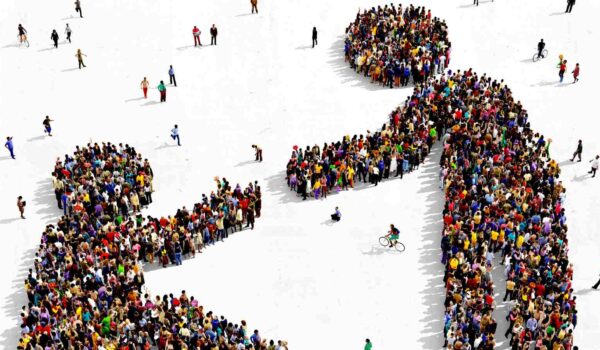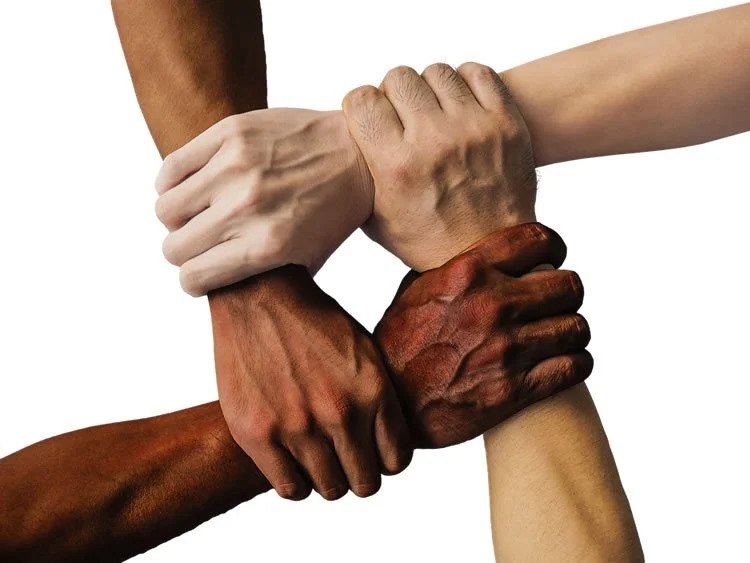What is Prosocial Behavior in Psychology?

Prosocial behavior is a fundamental aspect of human interactions, involving voluntary actions that benefit others. But what is prosocial behavior in psychology specifically? It refers to any behavior aimed at helping others, often motivated by empathy, moral values, or social norms. This article will provide a comprehensive examination of what is prosocial behavior in psychology, its underlying mechanisms, and the factors influencing these actions.
Whether through acts of kindness, volunteering, or helping someone in distress, prosocial behavior plays a critical role in fostering social cohesion. By delving into the psychological foundations of what is prosocial behavior in psychology, we can better understand why individuals engage in these actions and how such behaviors develop and are shaped throughout life.
Defining Prosocial Behavior
In defining what is prosocial behavior in psychology, it is important to recognize that these actions are voluntary and driven by the intent to help others. These behaviors can range from simple acts like sharing or helping a neighbor to more significant contributions, such as donating to charity or participating in community service. Although prosocial behavior can take various forms, the underlying commonality is the intention to benefit others without seeking direct personal gain.
Prosocial behavior contrasts with antisocial behavior, which involves actions that harm others or society. By understanding what is prosocial behavior in psychology, we can appreciate the diversity of behaviors that contribute to the well-being of others and the psychological motivations that drive individuals to engage in these actions.
Historical Background
The study of what is prosocial behavior in psychology began in earnest in the mid-20th century, particularly with research on human responses to emergencies. One famous study that shaped the field was the investigation by Darley and Latané into the bystander effect. Their research explored why people sometimes fail to help in emergencies, which contributed to a broader understanding of the factors that influence prosocial behavior.
Their work demonstrated that prosocial behavior is complex and influenced by various factors, including the presence of others and the perceived responsibility of the individual. As research on what is prosocial behavior in psychology evolved, several theories emerged to explain why individuals engage in helpful actions and under what circumstances they are most likely to do so.
Theories Explaining Prosocial Behavior

Several psychological theories offer different explanations for what is prosocial behavior in psychology and why people engage in it. These theories provide insight into the motivations behind prosocial actions and the conditions that encourage or inhibit such behavior.
1. Social Exchange Theory
Social exchange theory posits that people engage in prosocial behavior by weighing potential costs and rewards. According to this theory, individuals help others when they perceive that the benefits, such as social approval or reciprocity, outweigh the potential costs, such as time, effort, or resources. This approach suggests that prosocial behavior is often a calculated decision rather than a purely altruistic act, adding a layer of complexity to what is prosocial behavior in psychology.
2. Empathy-Altruism Hypothesis
The empathy-altruism hypothesis, proposed by C. Daniel Batson, suggests that prosocial behavior is often motivated by empathy. When individuals feel empathy for someone else, they are more likely to help without expecting anything in return, demonstrating that prosocial actions can stem from genuine concern for others. Understanding this perspective is essential to grasp what is prosocial behavior in psychology, as it highlights the role of emotional responses in motivating helping behavior.
3. Evolutionary Psychology
From an evolutionary psychology perspective, prosocial behavior may have been selected over time because it enhances survival and reproduction within groups. Behaviors like kin selection (helping relatives) and reciprocal altruism (helping others with the expectation of future help) are seen as strategies that ensure the survival of the group, making prosocial actions an essential aspect of what is prosocial behavior in psychology through an evolutionary lens.
4. Social Norms Theory
Social norms also play a significant role in shaping what is prosocial behavior in psychology. Norms such as reciprocity, fairness, and responsibility dictate how individuals interact with others. People are more likely to help when they feel a societal obligation to do so, and in certain cultures, failing to engage in prosocial behavior can lead to social disapproval.
Development of Prosocial Behavior

Prosocial behavior doesn’t appear overnight; it develops over time, influenced by both biological and environmental factors. Exploring the development of what is prosocial behavior in psychology helps us understand how these behaviors emerge and change over a person’s lifespan.
1. Infancy and Early Childhood
Research suggests that prosocial behavior begins to appear in infancy. Even at a very young age, children demonstrate simple forms of helping, such as comforting others or sharing toys. By observing these early behaviors, we gain insight into the initial stages of what is prosocial behavior in psychology and how empathy and social interactions shape these actions.
During early childhood, prosocial behavior becomes more sophisticated as children learn to navigate social norms and relationships. Parents, caregivers, and peers influence the development of these behaviors by modeling prosocial actions and encouraging cooperation and sharing.
2. Middle Childhood and Adolescence
In middle childhood, children begin to understand moral reasoning and social expectations, which further develop their prosocial behavior. Friendships and social standing become increasingly important, and children may engage in prosocial behavior to strengthen relationships and earn social approval. Adolescence continues this developmental trend, where social identity and moral values play a more prominent role in shaping what is prosocial behavior in psychology.
Factors Influencing Prosocial Behavior

Numerous factors influence what is prosocial behavior in psychology, including individual traits, gender differences, cultural contexts, and situational variables.
1. Personality Traits
Certain personality traits, such as empathy, agreeableness, and a sense of responsibility, are key predictors of prosocial behavior. Individuals who are naturally more empathetic are more likely to engage in prosocial actions, as they are better able to understand and respond to the needs of others. This connection helps clarify what is prosocial behavior in psychology and why some individuals are more inclined to help than others.
2. Gender Differences
Gender also plays a role in prosocial behavior. Research has shown that men and women may engage in different types of helping behaviors. For example, women are often more likely to engage in nurturing and caregiving forms of prosocial behavior, while men may be more inclined to perform heroic or risk-taking acts of help. These differences are culturally and contextually influenced and are important in understanding what is prosocial behavior in psychology.
3. Cultural Influences
Culture profoundly affects what is prosocial behavior in psychology. In collectivist cultures, where group harmony and cooperation are highly valued, prosocial behavior may be more common than in individualist cultures, where personal achievement and autonomy are prioritized. Cultural norms shape the ways individuals perceive and engage in helping behaviors, providing important context for prosocial actions.
4. Situational Variables
Environmental and situational factors can either encourage or inhibit prosocial behavior. For example, people are more likely to engage in helping when they are in a good mood, feel personally responsible for the situation, or believe the person in need is deserving of help. Conversely, the bystander effect – where individuals are less likely to help in the presence of others – is a well-documented phenomenon that impacts what is prosocial behavior in psychology.
The Bystander Effect
One of the most well-known situational variables in prosocial behavior is the bystander effect, where individuals are less likely to help when others are present. This phenomenon was first investigated in response to real-world cases of emergency situations where help was delayed. The bystander effect underscores the complexities of what is prosocial behavior in psychology, demonstrating that the presence of others can diminish an individual’s sense of responsibility to intervene.
Biological and Neural Bases of Prosocial Behavior
Recent advancements in neuroscience have begun to uncover the biological foundations of what is prosocial behavior in psychology. Research shows that areas of the brain involved in empathy, such as the anterior insula and medial prefrontal cortex, are activated when individuals engage in prosocial behavior. Furthermore, the hormone oxytocin plays a significant role in fostering trust, empathy, and cooperation, contributing to increased prosocial tendencies.
Promoting Prosocial Behavior

Promoting prosocial behavior has significant social and individual benefits. Psychologists, educators, and policymakers are interested in developing strategies to foster these behaviors. Understanding what is prosocial behavior in psychology is key to designing effective interventions that encourage individuals to act in ways that benefit others.
1. Empathy Training
Programs designed to increase empathy, such as those that teach perspective-taking and emotional recognition, are effective in promoting prosocial behavior. By enhancing an individual’s ability to understand and feel compassion for others, empathy training can significantly increase prosocial actions, further illustrating what is prosocial behavior in psychology.
2. Social Modeling
Parents, teachers, and other role models play a critical role in promoting prosocial behavior by demonstrating helpful actions. Observing others engage in prosocial behavior can encourage individuals to adopt similar behaviors, showing how social influence shapes what is prosocial behavior in psychology.
The Benefits of Prosocial Behavior
Engaging in prosocial behavior benefits both the recipient and the helper. Studies show that individuals who participate in prosocial actions experience greater feelings of happiness, social connectedness, and overall life satisfaction. Prosocial behavior can enhance mental health, reduce symptoms of depression and anxiety, and provide a sense of purpose, highlighting the personal rewards of what is prosocial behavior in psychology.
Conclusion
In conclusion, understanding what is prosocial behavior in psychology is essential for comprehending how humans engage in actions that benefit others. Prosocial behavior is influenced by a variety of factors, including empathy, social norms, personality traits, and situational variables. By studying the psychological mechanisms underlying prosocial actions, researchers gain valuable insights into how to foster these behaviors and create more cooperative and compassionate societies.
Through empathy training, social modeling, and supportive environments, individuals can be encouraged to engage in prosocial behavior, benefitting both themselves and their communities. The study of what is prosocial behavior in psychology continues to be a dynamic area of research, offering important lessons for enhancing social well-being and human flourishing.
